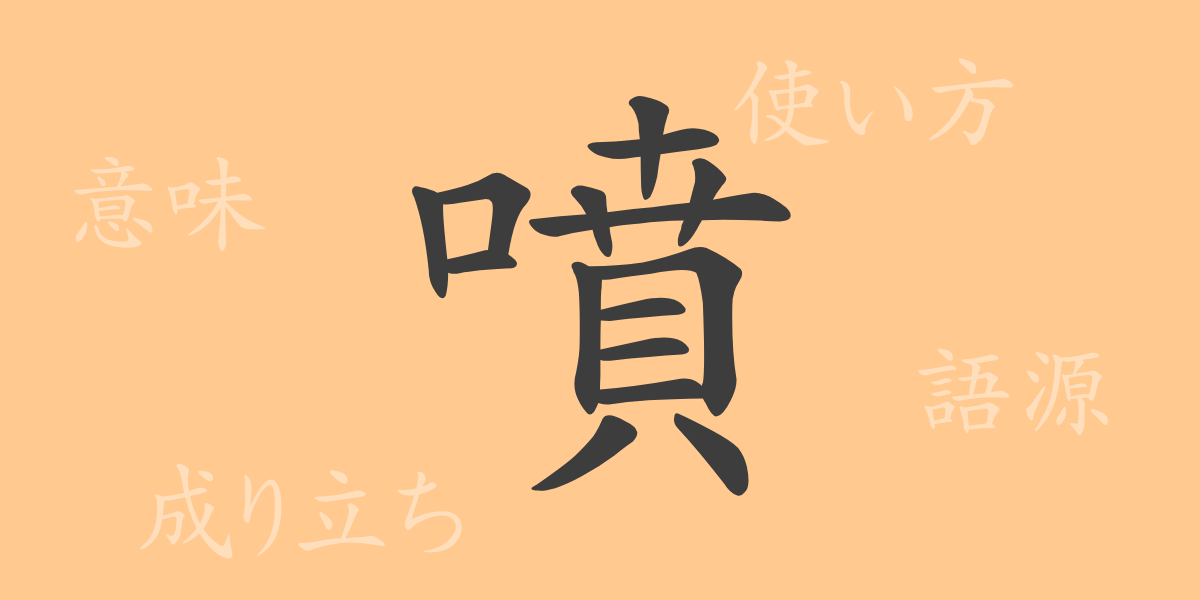The richness of the Japanese language can be felt even through a single kanji (かんじ, kanji) character. The commonly used kanji “噴” (ふん, fun) in daily life also carries deep meaning and history. This article delves into the origin of “噴” (ふん, fun), its modern usage, idioms, and proverbs, exploring its charm in depth.
Origin of 噴 (ふん, fun)
The kanji “噴” (ふん, fun) originated in ancient China as a term to describe the forceful expulsion of liquids or gases. It combines the radical for “mouth” (口, くち, kuchi) with the character “賁” (ほん, hon), which originally meant beautiful decoration. This combination evolved to depict the powerful and beautiful expulsion from within.
Meaning and Usage of 噴 (ふん, fun)
“噴” (ふん, fun) means “to spout” or “to erupt,” representing the vigorous expulsion of liquids or gases. For example, it is used to describe a volcano erupting or champagne bursting out. Metaphorically, it can also describe the explosive expression of emotions.
Reading, Stroke Count, and Radical of 噴 (ふん, fun)
“噴” (ふん, fun) has multiple readings in Japanese.
- Readings: In On’yomi (おんよみ, on’yomi), it is “ふん” (fun), and in Kun’yomi (くんよみ, kun’yomi), it is “ふ・く” (fu-ku), among others.
- Stroke count: 15 strokes in total.
- Radical: Belongs to the “mouth” (口, くち, kuchi) radical.
Idioms, Proverbs, and Expressions Using 噴 (ふん, fun)
Here are some idioms, proverbs, and expressions that include “噴” (ふん, fun).
- 噴火 (ふんか, funka): The phenomenon of a volcano ejecting magma and ash.
- 噴水 (ふんすい, funsui): A device that spouts water high into the air, or the water itself.
- 噴出 (ふんしゅつ, funshutsu): The forceful expulsion of liquids or gases.
- 噴飯物 (ふんぱんもの, funpanmono): Something so funny that it is difficult to stifle laughter.
Summary of 噴 (ふん, fun)
The meaning and history embedded in a single kanji character reveal the depth of the Japanese language. “噴” (ふん, fun) is widely used, from natural phenomena to various aspects of daily life and even emotional expressions. Understanding and appropriately using such kanji allows for richer Japanese expression.

























